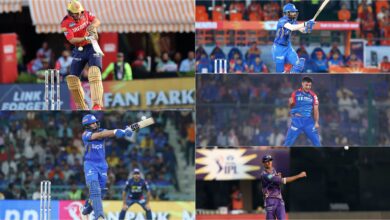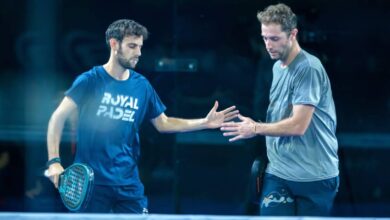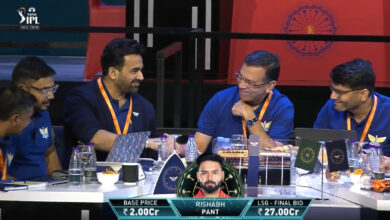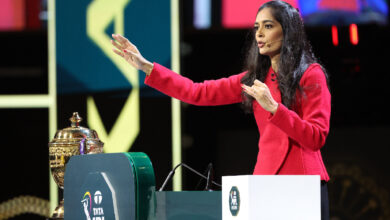A former chicken farmer, son of a butcher, aspiring diplomat: Meet the unbeatable Croatians

A goalkeeper who aspires to be a diplomat. A winger who worked on chicken farms. A midfielder who is a school dropout. And a defender who couldn’t speak Croatian, now leading Croatia into its second successive World Cup semifinals.
As Croatia defy all expectations to come within touching dance of another World Cup final, here’s a look at how it all began for their key players in four key positions on the field.
Perisic’s journey: Chicken farms, beach volleyball World Cups, to becoming football hero
Ivan Perisic worked on chicken farms and competed in the beach volleyball World Cup. Sandwiched between these two events of his life is a whirl-wind footballing career that’s littered with personal disappointments and fleeting moments of glory.Subscriber Only StoriesPremiumPremiumPremiumPremium
Like most families from the seaside Croatian town of Split, the Perisics were die-hard supporters of local club Hadjuk. They ran a chicken farm, where a young Ivan worked with his father. But his eventual goal was just one: to play for Hadjuk. That never happened, even though he was one of their brightest youth academy prospects. In 2006, Sochaux, a French second-division club, came calling for him. They sent a private jet for him and offered Hadjuk 360,000 euros for their biggest prospect. Reluctantly, the then 17-year-old Perisic decided to move.
” id=”yt-wrapper-box” >
The decision to leave wasn’t his. Just when Sochaux came calling, Perisic’s father had run into debts so steep that the chicken business was on the verge of bankruptcy. With the money they received for Ivan, his father believed, they could keep the business afloat. So he convinced his son and the rest of his family to move to France.
Ivan, however, never got playing time and in 2009, Sochaux loaned him to low-key Belgian club Roeselare. Later that year, he joined Club Brugge, where he flourished. In 2011, after he was the Belgian league’s top scorer, he almost pleaded with national coach Slaven Bilic to give him a chance with Croatia. “If need be, I’ll collect stray balls during training sessions,” he said.
As it turned out, he’s done a lot more than merely collecting stray balls.
An aspiring diplomat, Livakovic breaks nations’ hearts
For a man responsible for breaking the hearts of nations with his stupendous saves, diplomacy might not seem a natural future career. But that’s what Dominik Livakovic hopes to pursue once he hangs up his boots.
The 27-year-old played basketball in his early years when he stayed back after training to watch his local club’s footballers in action. Among them was Danijel Subasic, Croatia’s hero at the 2018 World Cup. His academically-inclined family – his father, an engineer, is a former miner in the Croatian government; his grandfather was a doctor and his grandmother an English teacher – nudged him towards studies.
” id=”yt-wrapper-box” >
It was a local football coach who pulled Livakovic towards the game, took him under his wing and turned the basketball player into a goalkeeper. Livakovic, from his childhood days, has been under Subasic’s shadow. Even at the World Cup in Russia, he was the reserve ‘keeper as Subasic did the star turn in the knockouts. This time, it’s his turn to shine.
“My family is perhaps the least sorry these days that I chose the ball instead of the book,” he was quoted as saying Slobonda Dalmajica. “In fact, I’m sure they’re glad that I didn’t decide to go to college.”
Once mocked for not speaking the language, Lovren is a defensive pillar
Dejan Lovren was three when his parents had to flee Zenica, the Bosnian city where he was born, due to the war in the former Yugoslavia.
They sought refuge in Munich, which they made their home for seven years. Lovren wasn’t affected the traumas of war. He loved life in Munich – went to school, spoke perfect German, played football for a local club…
Weeks after he turned 10, however, Lovren’s life changed. His family wasn’t granted permanent residency in Germany and the government ordered them to return home to Croatia, where his parents belonged.
” id=”yt-wrapper-box” >
“It was horrible at the beginning,” he told The Guardian in an interview. “…the guys at school were laughing at me because I didn’t speak Croatian well. I was speaking but they didn’t understand anything I said. But after a couple of years, it got better. I took the character from Germany and from my family because they were showing me that life is tough.”
After battling it out in the early years, Lovren’s football career took off, playing for clubs in five countries and becoming one of the pillars of the stingy Croatian defence.
A school dropout, Brozovic is the midfield mainstay
Marcelo Brozovic was 16 when his father made a life decision for him. Unlike the parents who would want their kids to have basic education as a back-up, Brozovic’s father — a butcher — asked his son to drop out of school. The reason? The school would not let him focus on football.
Brozovic was with the youth academy of local club Hrvatski Dragovoljac at the time and looked up to Croatian pop singer Nives Celzijus for inspiration (life coach, as he has described). Luckily for him, the move worked out.







